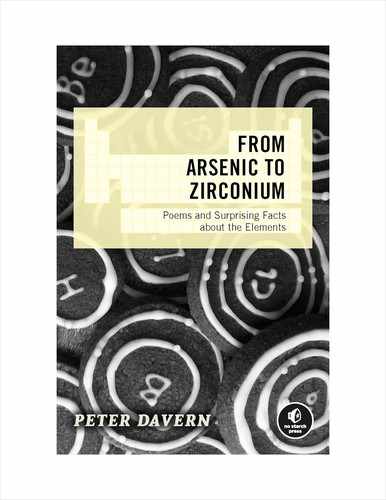This super-cool element’s a true Big Bang article,

HELIUM, He
BALLOON BOY
This super-cool element’s a true Big Bang article,
THE FIRST MEMBER OF THE GROUP 18 NOBLE GASES
Helium was one of the three fundamental elements formed during the Big Bang; the other two were hydrogen and lithium. Helium has an ultra-low boiling point of –269°C, making liquid helium an effective super coolant. This super coolant is necessary for superconductors to produce the powerful magnetic fields needed for specialist equipment, such as the MRI scanners hospitals use.
It’s high pitch’d and noble, so inertly hierarchical;
In hierarchical terms, helium sits at the very top of the group of noble gases (group 18) on the periodic table. It’s a lighter-than-air and chemically unreactive (known as inert) gas. These traits made it perfect for inflating airships and an ideal replacement for the flammable hydrogen that was used previously. When inhaled, helium makes your voice high pitched and squeaky because the speed of sound in helium is three times faster than it is in air.
Is becoming more rare,
Still balloons fill the air,
Helium is the second most abundant element in the universe, accounting for approximately one quarter of its mass. But it’s only the 71st most abundant element in Earth’s crust, where it forms during the radioactive decay of uranium and thorium and is then extracted along with natural gas. Invariably, the demand for helium (including its use in buoyant party balloons!) exceeds supply, and global reserves of the element are currently decreasing.

Just avoid its dense core, alpha particle!
When atoms of some large, unstable elements, such as uranium, thorium, radon, and polonium, undergo radioactive decay, they break up into fragments. One such fragment is a small particle with a dense core that contains just two protons and two neutrons. Known as an alpha particle, it’s essentially a helium atom without its two electrons; in other words, an alpha particle is simply a helium nucleus (He2+). Alpha particles are highly reactive and will whizz through the air in search of the pair of electrons (2e–) they need to become neutral helium atoms.
He2+ + 2e– → He
Outside the body, these tiny reactive particles pose little threat; yet if they somehow manage to get inside your body, they can cause big trouble! To see just how much trouble, flip forward to “Polonium, Po” on page 244 and read about the case of Alexander Litvinenko.
